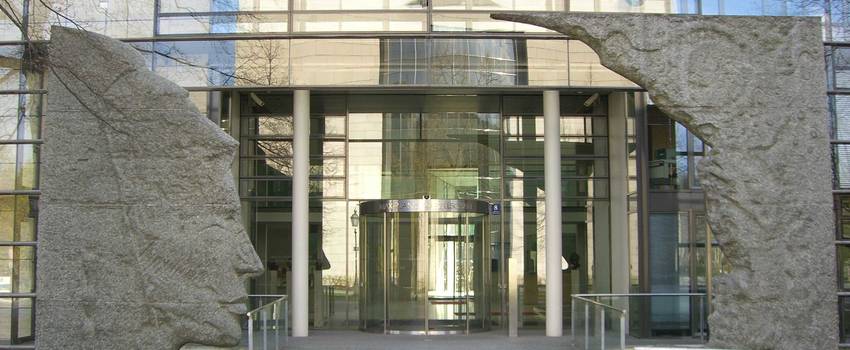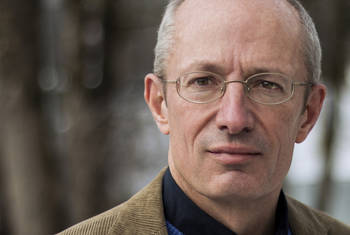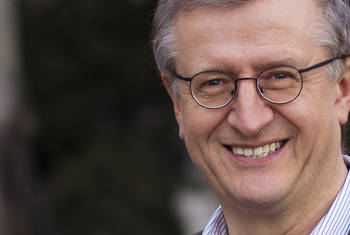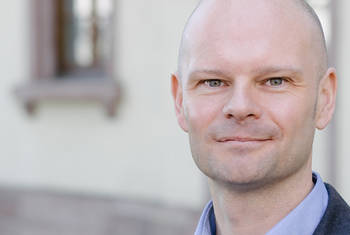Gia Dvali What Is the Fundamental Physics Behind the Information Processing of Black Holes?
Gia Dvali is Director of the Max Planck Institute for Physics as well as Professor of Physics at Ludwig Maximilian University of Munich and at New York University's Center for Cosmology and Particle Physics. Former affiliations include the European Organization for Nuclear Research (CERN) in Geneva, Switzerland and the Abdus Salam International Center for Theoretical Physics in Trieste, Italy. His major research interests are theoretical particle physics and quantum gravity. Dvali is a recipient of the David and Lucile Packard Foundation's Packard Fellowship, the Alfred P. Sloan foundation fellowship and Humboldt Professorship (2008).
Area of Research
Theoretical Particle Physics, Quantum Gravity
since 2010
since 2010
Professor of Theoretical Physics
Ludwig Maximilian University Munich (Ludwig-Maximilians-Universität München)
2007-2010
Permanent Staff Member
CERN (European Organization for Nuclear Research), Geneva Switzerland
since 1998
Professor of Physics
New York University
1997-1998
Researcher
ICTP (International Centre for Theoretical Physics), Trieste Italy
1995-1997
Postdoctoral Researcher
CERN (European Organization for Nuclear Research), Geneva Switzerland
1993-1995
Postdoctoral Researcher
INFN (Istituto Nazionale di Fisica Nucleare), Pisa Italy
1992-1993
Postdoctoral Researcher
ICTP (International Centre for Theoretical Physics), Trieste Italy
1992
PhD in Elementary Particle Physics
Tbilisi State University (Tbilisis Iwane Dschawachischwilis Sachelobis Sachelmzipo Uniwersiteti - TSU), Georgia
Fellowships
- Packard Fellow
- Sloan Fellow
- Member of Society of Fellows
Prizes
- New York City Mayor's Award for Excellence in Science and Technology
- Humboldt Professorship, Distinguished Research Chair at Perimeter Institute (2008)
 © Maximilian Dörrbecker
© Maximilian Dörrbecker
Max Planck Society
"The Max Planck Society is Germany's most successful research organization. Since its establishment in 1948, no fewer than 18 Nobel laureates have emerged from the ranks of its scientists, putting it on a par with the best and most prestigious research institutions worldwide. The more than 15,000 publications each year in internationally renowned scientific journals are proof of the outstanding research work conducted at Max Planck Institutes – and many of those articles are among the most-cited publications in the relevant field." (Source)
Institute
Max Planck Institute for Physics
"What gives matter its mass? This is one of the questions being investigated by scientists at the Max Planck Institute for Physics in Munich. They study the smallest building blocks of matter and how they interact with each other. The behaviour of these building blocks – the quarks, charged leptons and neutrinos – helps them to understand the origin of the universe and its present form. The Institute researchers conduct experiments at the largest particle physics laboratories around the world. These include CERN in Geneva, KEK in Tsukuba (Japan) and DESY in Hamburg. Moreover, they also perform experiments to investigate cosmic radiation on the Canary Island of La Palma and the neutrino experiment in the Gran Sasso underground laboratory in Italy. Theoreticians not only team up with the experimenters to jointly interpret the results of the experiments, but also to develop new theories in order to better characterise our universe." (Source)
Map
The objectives of the research in theoretical physics presented in this video are to understand the fundamental physics behind the properties of black holes and to find out whether black holes are unique in their way of information-processing. As GIA DVALI explains, the research he developed together with CESAR GOMEZ has two important findings. Firstly it shows that quantum criticality is the basic principle of the information storage capacities of black holes and secondly it manifests that other systems of nature can process information the same way. This has important implications for the understanding of elementary particles and for cosmology.
LT Video Publication DOI: https://doi.org/10.21036/LTPUB10168
Black Hole Based Quantum Computing in Labs and in the Sky
- Gia Dvali and Mischa Panchenko
- arXiv preprint arXiv:1601.01329
- Published in 2016









